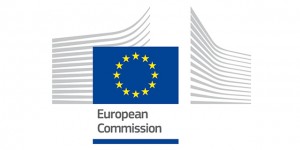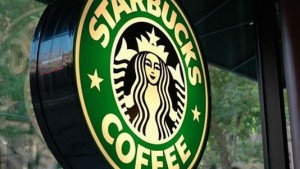European Commission Decides Selective Tax Advantage For Starbucks in the Netherlands is Illegal

Following in-depth investigations, which were launched in June 2014, the European Commission has concluded that the Netherlands has granted selective tax advantages to Starbucks’ coffee roasting company and Luxembourg to Fiat’s financing company. In each case, a tax ruling issued by the respective national tax authority artificially lowered the tax paid by the company. These are illegal under EU state aid rules.
Commissioner Margrethe Vestager, in charge of competition policy, states: “Tax rulings that artificially reduce a company’s tax burden are not in line with EU state aid rules. They are illegal. I hope that, with these decisions, this message will be heard by Member State governments and companies alike. All companies, big or small, multinational or not, should pay their fair share of tax.”
Tax rulings as such are perfectly legal. They are comfort letters issued by tax authorities to give a company clarity on how its corporate tax will be calculated or on the use of special tax provisions. However, the two tax rulings under investigation endorsed artificial and complex methods to establish taxable profits for the companies. They do not reflect economic reality. This is done, in particular, by setting prices for goods and services sold between companies of the Fiat and Starbucks groups (so-called “transfer prices”) that do not correspond to market conditions. As a result, most of the profits of Starbucks’ coffee roasting company are shifted abroad, where they are also not taxed, and Fiat’s financing company only paid taxes on underestimated profits.
 This is illegal under EU state aid rules: Tax rulings cannot use methodologies, no matter how complex, to establish transfer prices with no economic justification and which unduly shift profits to reduce the taxes paid by the company. It would give that company an unfair competitive advantage over other companies (typically SMEs) that are taxed on their actual profits because they pay market prices for the goods and services they use.
This is illegal under EU state aid rules: Tax rulings cannot use methodologies, no matter how complex, to establish transfer prices with no economic justification and which unduly shift profits to reduce the taxes paid by the company. It would give that company an unfair competitive advantage over other companies (typically SMEs) that are taxed on their actual profits because they pay market prices for the goods and services they use.
Therefore, the Commission has ordered Luxembourg and the Netherlands to recover the unpaid tax from Fiat and Starbucks, respectively, in order to remove the unfair competitive advantage they have enjoyed and to restore equal treatment with other companies in similar situations. The amounts to recover are €20-€30 million for each company. It also means that the companies can no longer continue to benefit from the advantageous tax treatment granted by these tax rulings.
Furthermore, the Commission continues to pursue its inquiry into tax rulings practices in all EU Member States. It cannot prejudge the opening of additional formal investigations into tax rulings if it has indications that EU state aid rules are not being complied with. Its existing formal investigations into tax rulings in Belgium, Ireland and Luxembourg are ongoing. Each of the cases is assessed on its merits and today’s decisions do not prejudge the outcome of the Commission’s ongoing probes.
Starbucks
Starbucks Manufacturing EMEA BV (Starbucks Manufacturing), based in the Netherlands, is the only coffee roasting company in the Starbucks group in Europe. It sells and distributes roasted coffee and coffee-related products (e.g. cups, packaged food, pastries) to Starbucks outlets in Europe, the Middle East and Africa.
 The Commission’s investigation showed that a tax ruling issued by the Dutch authorities in 2008 gave a selective advantage to Starbucks Manufacturing, which has unduly reduced Starbucks Manufacturing’s tax burden since 2008 by €20- €30 million. In particular, the ruling artificially lowered taxes paid by Starbucks Manufacturing in two ways:
The Commission’s investigation showed that a tax ruling issued by the Dutch authorities in 2008 gave a selective advantage to Starbucks Manufacturing, which has unduly reduced Starbucks Manufacturing’s tax burden since 2008 by €20- €30 million. In particular, the ruling artificially lowered taxes paid by Starbucks Manufacturing in two ways:
* Starbucks Manufacturing pays a very substantial royalty to Alki (a UK-based company in the Starbucks group) for coffee-roasting know-how.
* It also pays an inflated price for green coffee beans to Switzerland-based Starbucks Coffee Trading SARL.
The Commission’s investigation established that the royalty paid by Starbucks Manufacturing to Alki cannot be justified as it does not adequately reflect market value. In fact, only Starbucks Manufacturing is required to pay for using this know-how – no other Starbucks group company nor independent roasters to which roasting is outsourced are required to pay a royalty for using the same know-how in essentially the same situation. In the case of Starbucks Manufacturing, however, the existence and level of the royalty means that a large part of its taxable profits are unduly shifted to Alki, which is neither liable to pay corporate tax in the UK, nor in the Netherlands.
Furthermore, the investigation revealed that Starbucks Manufacturing’s tax base is also unduly reduced by the highly inflated price it pays for green coffee beans to a Swiss company, Starbucks Coffee Trading SARL. In fact, the margin on the beans has more than tripled since 2011. Due to this high key cost factor in coffee roasting, Starbucks Manufacturing’s coffee roasting activities alone would not actually generate sufficient profits to pay the royalty for coffee-roasting know-how to Alki. The royalty therefore mainly shifts to Alki profits generated from sales of other products sold to the Starbucks outlets, such as tea, pastries and cups, which represent most of the turnover of Starbucks Manufacturing.


































